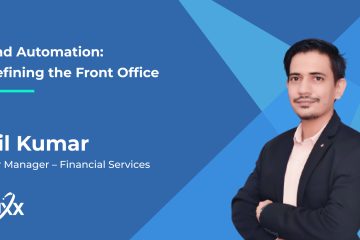Choosing the right development partner can make or break your startup. As a founder, you’re entrusting a dev shop with turning your vision into reality. To ensure both parties align, here are 5 critical questions to ask before signing that contract.
Each question includes what you, as a founder, should expect, and the dev shop’s perspective to foster mutual understanding.
Question 1: How Do You Handle Communication?
What the founder should expect:
Regular updates are crucial, and even Daily Stand-Ups can be critical for founders to join in many cases. Clear points of contact (“one neck to wring”) help avoid confusion and established tools like Jira, Slack, and Telegram ensure smooth communication. Asking for these up front, and getting answers you are comfortable with are very important.
Dev shop perspective:
Communication is a two-way street. Having done free Proof of Concepts (PoCs) in the past, dev shops often see founders needing more skin in the game. “I want to build an AI app that does X” sounds cool, but when the founder has only a vague idea and no technical specification, it wastes time for everyone. The dev shop has to make a lot of assumptions or spend excessive time guessing. Basic features like login functionality are easy to spec, but this is often where projects start to go off the rails due to lack of clarity.
Question 2: How Do You Estimate Costs and Manage Budgets?
What Founders Should Expect:
As a founder, you should be cautious about how you are spending your money (or your investors’ money). Asking a dev shop how they estimate costs is a great way to understand their approach and priorities. While it’s clear they need to cover expenses like employee salaries, you also want to ensure your money is getting proper mileage. Look for transparency in pricing, clarity in estimates, and a strategy that aligns with your budget expectations.
Remember not to default to cost-savings – don’t expect premium results on a shoestring budget – you get what you pay for to a certain extent. Rather than seeking guaranteed figures upfront, milestone-based billing offers a balanced approach, providing checkpoints for both parties while managing risk effectively. A great way to save money on this is to start with the Design before Development, doing the screens and working with Designers will flesh out issues in workflow without committing code. You can also start with Design and take it to another Dev shop later – just remember they won’t fully understand the design the way the original company did unless you can explain every aspect. Getting “pixel-perfect” screens should be the goal once development starts.
Dev Shop Perspective:
It’s frustrating when founders push for “fixed prices” without defining the project scope. This leads to a lot of rework because the Founder isn’t sure what they want. On the other hand, Time & Materials contracts can feel vague and often result in sticker shock when invoices are sent.
Getting paid some percentage to start is the best way to motivate the founder as well (having some skin in the game). I’ve seen too many founders abandon projects when given a “free PoC” leaving the Dev shop with idle resources who they still need to pay.
Again for this, the best way is to start with a collaborative Design effort and then move into development later, once they know how it is to work with each other.
Question 3: How Do You Ensure Code Quality?
What Founders should expect:
If you’re not technical, it’s hard to vet what a dev shop says about code quality upfront. You’re probably not even speaking to a technical person at the start, and that’s okay. The reality is, in my 10+ years of experience in software, I’ve never met an engineer who looks at a predecessor’s code and says, “Hey, this is great!” Developers often criticize previous codebases for various reasons: poor commenting, bad logic, lack of scalability, or even differences in coding style. So what can you realistically expect a dev shop to say? Standard responses like “Code reviews, automated testing, adherence to industry best practices” are par for the course.
Instead, as a founder, focus on bug fixing and user testing. Bug fixing processes reveal how the dev shop handles issues in real time and whether they prioritize quality. User testing releases is another critical area where you should be involved. Being able to click around, interact with the app, and provide direct feedback is vital if the app is important to you. Ask the dev shop about timelines for iterations, their process for incorporating feedback, and how often you’ll get a chance to test releases.
Dev shop’s perspective:
Quality assurance takes time, and it’s often undervalued by founders who prioritize speed. While QA includes code reviews and automated testing, these practices alone don’t guarantee a perfect product. Founders who actively participate in user testing help reduce back-and-forth cycles and provide clarity on expectations. However, this level of involvement requires discipline and timely feedback. Dev shops appreciate when founders engage constructively, as it leads to better outcomes and a smoother process overall.
Question 4: Can You Provide Case Studies or References?
What Founders Should Expect:
Asking for case studies or references is a great way to vet the legitimacy and track record of a dev shop. You should expect success stories relevant to your industry, with clear examples of problems they solved, timelines they met, and results they delivered. A dev shop that has worked on similar projects will likely have a better understanding of your challenges and be more equipped to deliver value. Before asking for references, explore other ways to assess their credibility – look online for testimonials, reviews, or even sample deliverables if available.
Remember, online reviews can be faked. Reviews bunched up too frequently or using similar language may be done internally by the Dev shop or even AI Generated – but here you can use fire to fight fire! Go on ChatGPT or similar and copy/paste the reviews and ask the AI to analyze if they are legitimate and to point out any suspicious elements. Reference checks are most appropriate during the final stages of closing a deal, as asking too early can come across as premature and may strain relationships.
Dev Shop Perspective:
Providing references is a double-edged sword for dev shops. On one hand, it’s understandably a key trust-building exercise for founders; on the other hand, it’s a significant ask of past clients. Past clients are busy running their own businesses, and no dev shop wants to burn goodwill by overburdening them with calls from prospective clients who may not even move forward. This is why most dev shops prefer to provide references only once they know a deal is close to finalization. Another challenge is that case studies and references may not fully reflect the complexity of the client relationship – success is often a joint effort, and not every client will provide the glowing endorsement you might expect, even if the project went well overall.
Question 5: What Level of Post-Launch Support Do You Offer?
What Founders Should Expect:
The relationship with your dev shop shouldn’t feel like a mercenary engagement where they deliver the product and disappear. Instead, you want a collaborative effort, even though they aren’t full-time employees (FTEs), a good dev shop will offer clear post-launch support plans that outline what happens after your product goes live. This includes maintenance agreements to keep your product running smoothly, bug-fix guarantees for addressing issues that arise, and optional services like feature enhancements or optimizations.
Be sure to ask about a “warranty period” – a defined time frame after launch where the dev shop will fix any defects included in the original scope without additional charges. After that, they should explain how future work will be handled, whether through Statements of Work (SoWs) or Change Orders. Founders should also budget for ongoing maintenance. Software is never “done,” and failing to account for updates, server changes, or compatibility fixes can lead to costly downtime.
Dev Shop Perspective:
Post-launch support is one of the most resource-intensive aspects of a project, and it’s often underestimated by founders. While dev shops are committed to ensuring the product’s success, they can’t provide indefinite support without compensation. Warranty periods are standard in the industry to address bugs or oversights in the original scope, but anything beyond that – such as new features, integrations, or updates – requires additional agreements.
From the dev shop’s side, it’s frustrating when founders assume all maintenance will be included forever. Supporting a live product means dedicating developer time, which comes at a cost. That said, dev shops understand that founders need predictability, so they should proactively explain how future support and enhancements will be billed. Offering options like retainer agreements or pre-purchased blocks of hours for post-launch work can help balance flexibility with cost control.
Ultimately, post-launch support works best when it’s built on mutual respect and clarity. Founders who treat their dev shop as a long-term partner rather than a one-time contractor are more likely to see their product thrive over time.
Setting Founders and Dev Shops Up for Success
By asking these questions, founders can identify potential red flags early and set clear expectations. For dev shops, transparency and accountability during these discussions build trust and lay the groundwork for a productive partnership.
At Ionixx Technologies, we’ve built our processes to address these very concerns, fostering collaboration and ensuring founders feel confident every step of the way. If you’re looking for a partner who understands your challenges, we’d love to chat just click here to connect.


